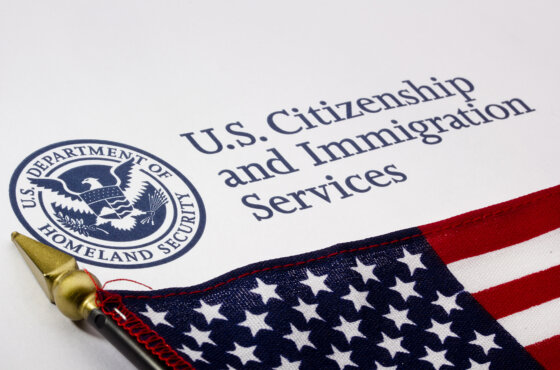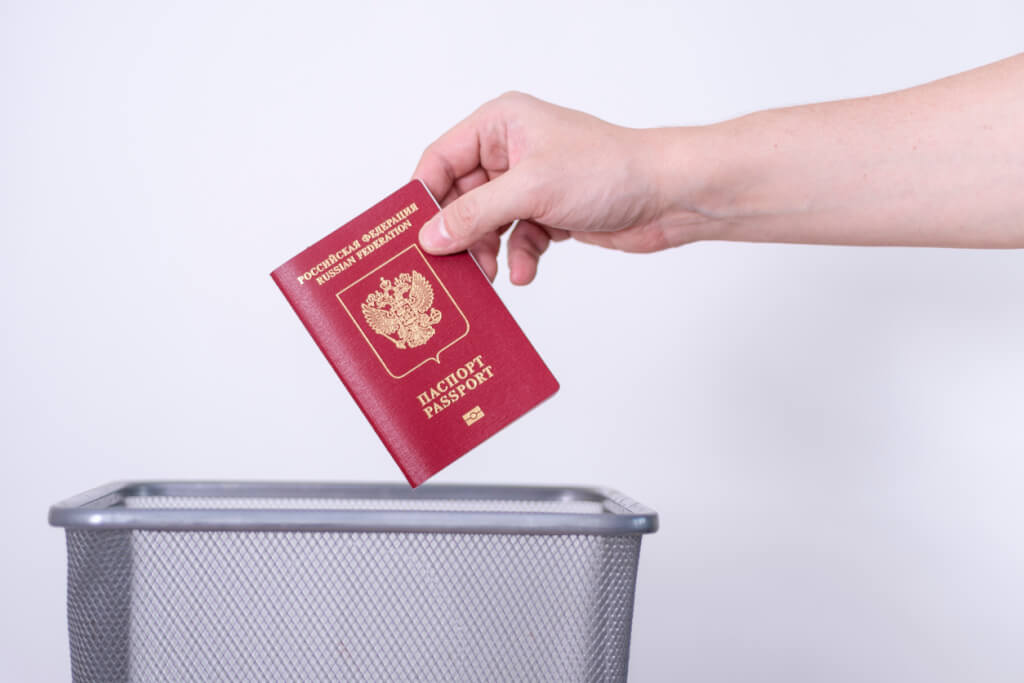How To Give Your Kids the Best Education in the USA: Our Personal Experience
Our daughter was accepted last year to Harvard-Westlake, the #1 high school in California. It was also ranked the #2 in the United States for 2019. It was a long and difficult journey to get this acceptance. As first-time parents, we made mistakes, especially when it came to our kids’ education.

Photo credit: Wise School
I don’t believe in relying on luck. I believe in hard work. In order to correct our mistakes, we faced harsh obstacles along the way.
I hope that other parents can learn from our mistakes. I hope that other kids, too, have the chance to get on track to an excellent education.
My husband and I met in Los Angeles. I’m an immigrant, born in Chernovtsy. When we met, he was a filmmaker, born and raised in the American Midwest. At the time I was working for a State elected official. When our daughter turned one, we moved to a rural but affluent town in Colorado. My husband had decided to join his business partner on a long-term work opportunity there.
We weren’t thinking about schools. We weren’t thinking at all about the future. Soon our son was born, and it was time to investigate Kindergarten. Nothing could have prepared us for what happened over the next few years.
What we uncovered about schools was shocking. As new parents, we make certain assumptions about child rearing. On many occasions, we’ve been proven wrong.
I remember as a new mom, staying up at night, worrying over nothing: researching pacifiers; the brand of the baby bottles where my pumped milk was poured; and later, I would spend hours poring over articles about behavior, sibling rivalry, and all the useless worries that have a way of righting themselves.
It turned out that none of these things were priorities. None of them would be life changing.
I should have been reading about elementary schools in the United States. When our daughter was in Kindergarten, I found this out the hard way.
In our rural area, there were two options for elementary school. From the two options, all of the affluent, educated parents were always choosing one of these schools.
And this is exactly where we went wrong. We had assumed that those educated families were choosing that one school for the same reasons that we would. My mother was a physicist, my father a doctor, and my husband and I had careers in the arts, in politics, and in business. We have always had very high standards for math, reading, and all of the fundamental academic subjects. We assumed that those other parents, because they had reached the tops of their careers, shared our high standards.
So we enrolled our daughter in Kindergarten. We chose the school that those other parents selected for their own kids.
By the second semester, I started to get the feeling that something wasn’t right.
Research was my specialty. So I began to do some digging around. I began looking at public and private elementary schools all over the U.S. I was stunned by the outcome.
I wanted to see how other students in towns all over the U.S. were performing in math and reading comprehension. I looked at schools and students from socio-economic backgrounds on both extremes: the lowest incomes and the highest. I was going to compare those students to the students in my daughter’s school.
After all, I thought, how difficult would it be for children of affluent, dual-income households to be better at math? I was comparing those high-income students to kids in the poorest parts of the country.
Wouldn’t it be absurd if low-income students in rural Alabama — whose first language wasn’t English – were to outperform the most affluent kids in our affluent town?
We were blindsided by the results of my research. How could this be?

Photo: Depositphotos
We met with the administration of our daughter’s school and showed them the research. It was all there, in black and white. There was no way to argue that it wasn’t fact. The school asked us not to share the information. They promised to do better, but they didn’t have a plan in place. Our son was already attending their preschool two days per week. Our third baby had been born. We had no choice. We did not re-enroll our kids for the following school year.
That was when I began the long and frustrating process of home-schooling the kids. Home-schooling was something I had never imagined. But we wanted nothing more than a meaningful education for our children. We were going to go to any length to achieve that. For each academic subject, I had to figured it out through trial-and-error. I made many errors, but I was able to find solutions to most of the hurdles.
I aimed to find the most Socratic method of learning for young children. They were progressing beautifully.
But it wasn’t long before the kids became lonely. They needed a peer group. They needed to interact. So we created a proposal for the local School District. We met with the Superintendant and presented our proposal. The District allowed our children to participate in some of their programs while I continued to home-school them.
Pretty soon, word got around. Many other parents began to jump on the bandwagon. This was where our plan collapsed.
The School District told us that there were too many families wishing to participate in the hybrid program that we’d created for our own kids. The District could not sustain that, they said. It was too confusing for the teachers and staff. They allowed us to continue through the end of that school year. After that, we’d have to choose one or the other.
We packed our things and moved back to Los Angeles, where there would be many schools to choose from. In some ways, I was relieved. I’d have the freedom to return to my career. The kids would make friends. Finally, we could all put our roots down. The kids would be at a great school without reinventing the wheel.
The question was, out of so many choices, what would be the most fitting option for our family? Where would our kids thrive?
We had freedom. We could move anywhere. We could opt to be in any town in LA, or any School District. After countless hours of research, we narrowed our choices down to fourteen schools. Our search spanned all over Los Angeles, and farther. We toured schools in the San Fernando Valley all the way to Manhattan Beach. Public and private. We even trekked out to Palos Verdes.
If I had to choose one thing, I would say the main priority was to continue the Socratic way of thinking that I’d started to teach my kids.
At Wise School, we found that and much more. Wise School has a longstanding partnership with USC. One of the top aims of Wise is to provide a gifted level of education to all of its students – regardless of ability.

Wise School is home to the California State Champions of «Odyssey of the Mind» international problem-solving competition.*
*The photo above was taken in Project Studio at Wise School. It’s the only STEAM-based facility of its kind in the Los Angeles area. Because of the facility’s unique resources, Wise School’s champion Odyssey of the Mind
teams work out of Project Studio. Odyssey of the Mind is an international problem-solving competition. Thousands of school teams in 26 countries, including Russia, China, and India, compete for a chance to place among the world’s best teams. Wise School Odyssey teams have been California State Champions for several years and placed in the top three and top ten in the world.
Wise School is the only Jewish Day School in California to be awarded the 5-Star Gifted Awardby the California Association for the Gifted. This means that across all subjects, students learn to think critically and ask profound questions.
Because of this unique offering, Wise School has a vibrant, international community filled with parents who are first-generation (and second, and third-generation!) immigrants from all over: Russia, Ukraine, Iran, China, Korea, etc. Though it is affiliated with a Jewish temple, Stephen S. Wise, many non-Jewish families hear about it and enroll. One of the benefits of the temple affiliation is that the school is able to provide financial aid to many families who need it. Wise is also known for having one of the most impressive security operations in the city.
From the moment we walked onto the campus, we knew that Wise School would be the right place for our kids. The “Gifted-Education-For-All” approach is one that we have not been able to find anywhere else in Los Angeles.
About the Author: Inna Rosenzweig is a former speechwriter who emigrated from Ukraine to the U.S. as a child. She has lived in Boston, New York City, London, Miami, Chicago, and Aspen, CO. She teaches writing in Los Angeles.
Читайте также на ForumDaily:
ForumDaily wins prestigious Ippies Awards
We’re loosing it: Why immigrants’ children need Russian language
What It’s Like to Be a Retired Immigrant in New York
‘Green card’ victims: how to find protection from abusive husband and avoid being deported
Подписывайтесь на ForumDaily в Google NewsХотите больше важных и интересных новостей о жизни в США и иммиграции в Америку? — Поддержите нас донатом! А еще подписывайтесь на нашу страницу в Facebook. Выбирайте опцию «Приоритет в показе» — и читайте нас первыми. Кроме того, не забудьте оформить подписку на наш канал в Telegram и в Instagram— там много интересного. И присоединяйтесь к тысячам читателей ForumDaily New York — там вас ждет масса интересной и позитивной информации о жизни в мегаполисе.



















